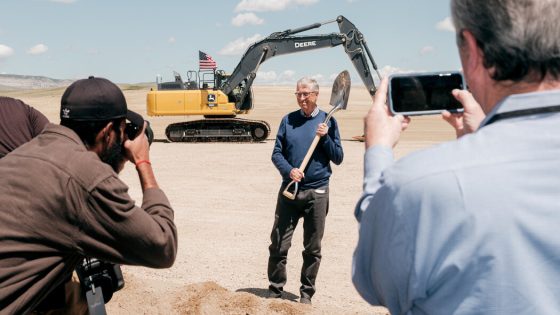STORY: Under the once-lush slopes of the Nyiragongo volcano in eastern Democratic Republic of Congo, traders are hard at work.
These chest-high sacks of charcoal, in the town of Kibati, are the product of deforestation that has, according to the United Nations, reached “unprecedented levels.”
That’s amid an ongoing insurgency in North Kivu province by the M23 rebel group.
The violence has displaced over 1.7 million people like Jacques Muzayi.
“I’m here because we’re starving in the camp. We decided to produce charcoal to feed our children.”
The insecurity has worsened pressure on the region’s once densely forested hillsides and the Virunga national park, home to many of the world’s last mountain gorillas.
Each morning in Kibati, crowds of locals and displaced people enter the park’s territory in search of logs to burn to make charcoal.
Others go deeper to cut trees for planks or plant crops in newly open land.
And that’s all happening in a park that is one of the most biodiverse territories on the continent, home to three types of great ape, bush elephants and the endangered okapi – nicknamed Africa’s unicorn.
Bantu Lukambo is head of a local environmental organization.
“Frankly, for us as locals, it breaks our hearts, because for us, the park is everything. We live because of this park. So when we see that the park is being decimated, it breaks our hearts. And today, we estimate that only around 20 square kilometers of forest in the southern sector remains.”
:: December 23, 2022
:: Kibumba, Democratic Republic of Congo
In 2021, authorities declared martial law in Congo’s east in response to the rising violence.
According to a U.N. report, armed actors on both sides have profited off the production or trade in wooden planks in the areas they control.
Illegal and uncontrolled logging, the July 8 report said, has led to “the destruction of significant swathes of virgin forest in protected areas of Virunga.”
And here’s what that looks like in satellite images taken between August 2022 and June 2024.
:: Planet Labs PBC
:: August 9, 2022
:: July 21, 2023
:: June 26, 2024
Data from Global Forest Watch, an initiative that use satellites to track deforestation, showed that annual tree cover loss in Virunga rose over 22% to 16,813 acres in 2021.
A further 17,928 acres were lost in 2022.
At a roadside depot in Kibati, planks – some of which have come from trees in Virunga – are unloaded off the back of motorbikes.
Christoph Lewis, one of those displaced by the violence, says you earn up to 500 Congolese francs – that’s about $0.18 – per bike.
He says he wants the authorities to do everything possible to end the war – because that is what pushes people to destroy the environment.
If the war ends, he says, “they will stop cutting the trees.”
Source Agencies



